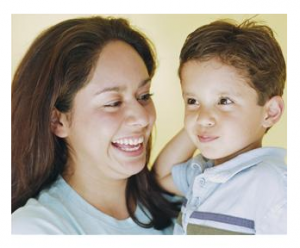GREs. Recommendations. Grades. Research. May we add an upcoming lab, 17 hours a week of part-time work, midterms, and regular classwork?
 I felt like a Graduate School Admissions Counselor.
I felt like a Graduate School Admissions Counselor.
But more importantly, I felt like a trusted resource to my son, who was calling on my cell as I pulled into the driveway after my own tiring morning.
I was the parental sounding board I always hoped to be.
My firstborn is a senior in college, extremely independent, and asking for my counsel is a reminder of the bond we share, and his respect for my opinion.
A newly minted 21-year old, my son has traveled the world for many years, studied as well as worked overseas, and is essentially working his way through college via a combination of scholarships, loans, and part-time jobs.
He’s a remarkable young man. And I consider myself extraordinarily lucky.
Parenting Style: Helicopter? Attachment? “De”tachment?
I have not been an attachment parent.
I have not been a free range parent.
I have not been a helicopter parent.
I do not associate myself with any such classification currently in vogue or, for that matter, under attack.
My parenting style has been “take your cues from your kids,” trial-and-error, and as a single mother for a decade – “Get Through One More Day.”
College has been no different, with logistical exceptions. Both of my sons are half a country away, entirely on their own, yet both know I’m available to them for love and counsel. But there is no schedule by which my sons call from college, and no expectations of them “owing” me anything. I will also state there is no expectation that I owe them anything at this stage except the annual FAFSA, my love, my wisdom such as it is, and no interference.
Might we call this Detachment Parenting?
One caveat: if I thought either were in real danger, all bets are off.
That said, sometimes two months goes by without a word. But they message, mail, call or Skype when they choose. And generally, I drop everything when they do, delighted to be the recipient of their questions, their stories, or their asking how I’m doing.
Graduate School Admission Requirements: Stamina?
 My elder son sounded tired. His workload is demanding, and with the 17-hour/week job along with GREs and graduate school applications, he’s living a “zero downtime” schedule which I understand all too well.
My elder son sounded tired. His workload is demanding, and with the 17-hour/week job along with GREs and graduate school applications, he’s living a “zero downtime” schedule which I understand all too well.
But this slightly quirky kid is tough and innovative; he’s a born communicator and problem-solver. He has been known to advise me – and I listen.
He was also the empathetic seven-year-old who cared for me and his little brother when I was ill for months, and their father was traveling. He was the child whose gregarious nature and endless questions challenged me at every turn. He sprinkled my hair with plenty of gray – and somehow, we both survived.
He was calling to discuss the Graduate Record Exams (GREs), his upcoming graduate school application process, the professors he was considering for recommendations, the schools he is interested in, what they look for in viable candidates, whether or not now is the right time for this next step, and the rest of his “routine” which includes a full course load and his part-time job.
The Apple Doesn’t Fall Far From…
That saying that the apple doesn’t fall far from the tree?
In the case of my kids, I’d say it’s true. On both sides of the family, you’ll find a mix of scientists, engineers, artists, musicians, and language lovers.
My elder son is pursuing study in the sciences, while continuing to indulge his verbal vitality. Along with French and German? His most recent language adventure is Japanese!
As he talked about the prep he was involved in for grad school, I was aware of the extraordinary stamina that is required to juggle everything he – and so many college students – manage on a daily basis. Not only as they prepare for grad school admissions, but getting through four years of college – whatever the field, whatever the school.
And that leads me to the entitlement discussions which frequently show up in the press.
Parenting College Students the Old-Fashioned Way
We hear about helicopter parents interfering with college kids – trying to assist with their work, contacting their faculty and advisers – having done so much for these young men and women for so long that the students are struggling with becoming independent.
 I have no doubts this phenomenon is real.
I have no doubts this phenomenon is real.
But what about the students like my sons – whether kids of single parents or not – who are doing it the old-fashioned way, because their parents did as well? Or perhaps, because that’s the only option available?
I suspect there are millions of college students across the country who are learning and making mistakes, calling parents when they choose, and experiencing these critical transitional years the old-fashioned way, as parents get on with their lives and accept that this is the natural order of things.
Parenting older teens and young adults in this non-style doesn’t make news. We don’t pretend to know everything that’s going on in our kids’ lives, much less control any of it. And sometimes, we choose ignorance. Yet I doubt I’m the only mother receiving a call to share an accomplishment, to provide an update, and to ask for suggestions – not intervention nor prescriptions for success – but dialogue.
Talking and Listening to Young Adults as Adults
After 40 minutes of conversation with my son, I had learned a great deal about graduate admissions today versus 30 years ago when I went through this – and had no one to talk to about the process.
 I also offered a recommendation relative to managing his time, which reinforced an idea he had considered which – as I listened to him speak – was the only “give” in a grueling schedule. To the extent that any counsel I provide is welcome and reasonable, I am grateful my sons feel they can turn to me for an exchange of ideas, as adults.
I also offered a recommendation relative to managing his time, which reinforced an idea he had considered which – as I listened to him speak – was the only “give” in a grueling schedule. To the extent that any counsel I provide is welcome and reasonable, I am grateful my sons feel they can turn to me for an exchange of ideas, as adults.
Regardless of the graduate school admissions outcome – the application process is only beginning, and it’s uncertain whether he will choose to apply now or wait a few years – I am reminded that we as parents must allow our children to “own” themselves. This is the path to independence – hit or miss at times, scary for us and them, different with each child.
This old-fashioned “detachment parenting?” That’s how we roll, and it isn’t always easy.
I remember my sons as little boys. I cherish those moments; at times I miss them. And single parent empty nest can bring a stark loneliness that is hard to describe. But it’s also freeing and satisfying – getting your own mojo back, and knowing your children are decently launched.
Interesting article today Blw. I tended to parent (my sons are 41 and 39) in the day with contact but not interference. I liked to let them call me as they had time to talk when that happened. No graduate school for either. They know now as they knew then, I am definitely here for them and now for their families. I didn’t hover ever and I didn’t do their work for them. I encouraged them to seek their own way. The only thing I suggested was travel the world before you settle down and marry later than I did at 19. They both married at 31 and saw some of the world before they settled in to marriage and kids.
I like that; detachment parenting. That’s definitely my goal, though I freely admit that sometimes I go too far in some other directions from time to time. I just hope I can do half as good a job as you’ve done, BLW!
I admire you your ability to let your “boys” live their own lives. As my eldest creeps closer to school-age and has more hours away from me than ever before, I find myself contemplating how our relationship will shift and what kind of mother will I be to a kid who isn’t with me around the clock. While I don’t subscribe to any particular school of parenting, I find the helicopter tendencies I sometimes see the most frightening of all. So far the philosophy I try to follow is what I might call the “few steps back” approach: let them walk ahead of you and make their own mistakes, but be close enough to help them up if they need it. Maybe we could call it detachment parenting lite? 😉
Believe me, Kristen, “detachment” was easier with my older (very early), and more difficult with my younger (quite late). It depends tremendously on the child, and also, what age / stage they are at. Detachment came more easily in the tween / teen years – which is as it should be (IMO). That’s also when all the most dangerous temptations hit – cigarettes, alcohol, drugs, sex, driving – and their judgment generally sucks. You could call my parenting the “yo-yo” during a couple of years there – enough rope to hang themselves, and tightening the leash when required.
What particularly irks me though is an assumption that a certain amount of protectiveness when they’re little is de facto over-protectiveness. Likewise, that we’re all interfering with our kids in college. It just isn’t so.
Detachment parenting doesn’t stop at college. Ours are 13 and 18 hours away, so it’s difficult to do anything but detached parenting! And while they’re on their own, there’s a fair amount of calls to mom and dad for their opinions…which is a wonderful result of letting go and letting them fly on their own.
I like the the terms “detachment parenting” and even “yo yo parenting”;-) (that latter would best describe me…).
You raise an interesting point. My younger brother and I have argued about this time and again. I’ve spent my life pushing my very involved mother away, insisting on making my own decisions without her interference. My brother, on the other hand, tells her everything! I’ve found this a bit alarming and told him so, but his response is always, “Why is it dysfunctional to have a good relationship with your mother?”
Maybe our culture of labeling doesn’t leave room for those parents and children who simply want to maintain a good relationship in which they can turn to one another for guidance and support. I agree that this is what I would want when my child gets older.
You hit the nail on the head, Cecilia. Among other things, our “culture of labeling” needs to ease up.
Wow, you have two of them? you are an awesome mom!
As you say, every kid is different. I always liked this poem of Stafford’s:
With Kit, Age Seven, At the Beach
We would climb the highest dune,
from there to gaze and come down:
the ocean was performing;
we contributed our climb.
Waves leapfrogged and came
straight out of the storm.
What should our gaze mean?
Kit waited for me to decide.
Standing on such a hill,
what would you tell your child?
That was an absolute vista.
Those waves raced far, and cold.
“How far could you swim, Daddy,
in such a storm?”
“As far as was needed,” I said,
and as I talked, I swam.
— William Stafford